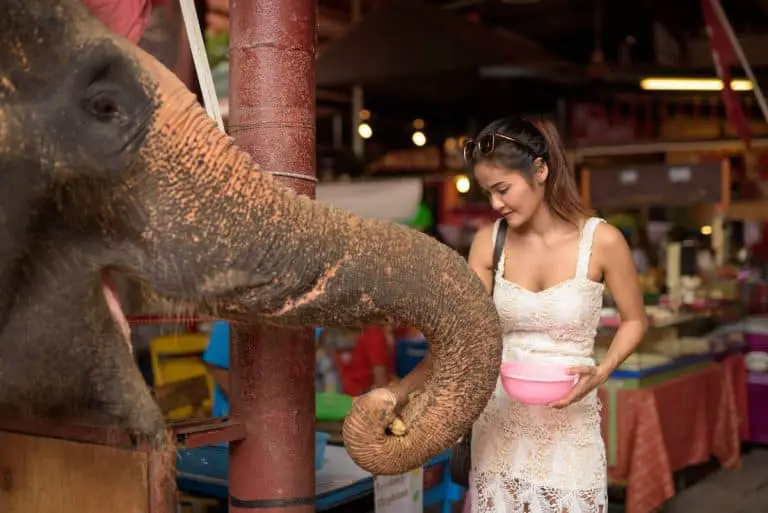Understanding The Work Culture In Thailand For Expats
Have you ever wondered why your Thai colleague seemed to agree with your proposal in a meeting but later took an entirely different direction? Or perhaps you’ve been puzzled by the elaborate morning greeting rituals in a Bangkok office?
I’m Tom Kitti, and after 35+ years in American corporate life before relocating to Thailand, I’ve experienced these cultural puzzles firsthand. Here are some insights on the work culture in Thailand that I wish someone had explained to me when I first arrived.
Key Takeaways
- Thai workplace culture is founded on respect for hierarchy and maintaining harmony, with interactions guided by traditional values like the “wai” greeting and addressing superiors with the “Khun” prefix.
- Communication in Thailand tends to be indirect and non-confrontational, with an emphasis on “saving face” and reading non-verbal cues to navigate workplace relationships successfully.
- Despite embracing modern business practices, Thai work environments still prioritize personal connections over transactional relationships, with family values and festival celebrations playing important roles in work-life balance.
Hierarchical Structures in Thai Workplaces
Khap Chun: The Cornerstone of Workplace Order
The concept of Khap Chun (meaning order or rank) is central to understanding Thai office life. Unlike many Western offices where casual interactions between management and staff are common, the Thai corporate structure is generally more formalized, where seniority is more noticeable.
Age, position, and experience create a clear social ladder that everyone acknowledges. This means that:
- Junior employees typically wait for senior colleagues to initiate conversations
- Decision approval follows a strict chain of command
- Seniors provide guidance and protection, while juniors offer respect and support
This hierarchical culture isn’t just about control—it creates clarity about roles and responsibilities. Everyone knows their place in the organizational ecosystem, which can make workflows surprisingly efficient once you understand the system.
Proper Etiquette for Showing Respect
Your ability to show appropriate respect will significantly impact your professional success in Thailand. The wai greeting (a slight bow with palms pressed together) is perhaps the most visible expression of this respect system. The depth of your wai and who initiates it communicates volumes about perceived status. As a foreigner, rather than initiating the wai, it’s best to see which greeting you’re offered and respond accordingly.
Business cards carry significant weight in Thai professional settings. Always present and receive cards with both hands, and never casually stuff a received card into your pocket—this would be considered disrespectful.
When addressing colleagues, use the title “Khun” followed by their first name, regardless of gender or marital status. For example, Kittisak Charoensuk would be addressed as “Khun Kittisak.”
Pay attention to physical positioning too—in Thai culture, feet are considered unclean, so pointing them at colleagues or placing them on furniture is a serious faux pas. These may seem like small details, but they speak volumes about your cultural awareness.
Communication Styles and Practices
Indirect Communication and Face-Saving
Perhaps the most challenging aspect for Westerners to master is the indirect communication style prevalent in Thai workplaces. Direct criticism or disagreement, especially in public, causes someone to “lose face”—an uncomfortable situation that Thais dislike to avoid confrontation.
Instead of saying “no” outright, a Thai colleague might say:
- “We’ll try our best” (meaning: this is going to be difficult)
- “That’s an interesting idea” (meaning: I don’t think this will work)
- “Let me check on that” (meaning: probably not possible)
Learning to read between the lines is crucial. When giving feedback, sandwich constructive criticism between positive comments and always deliver it privately. Remember, preserving harmony in the workplace takes precedence over absolute directness.
Non-Verbal Communication Essentials
Since direct verbal communication can be limited, non-verbal cues carry tremendous weight in Thai professional settings. A slight tightening of the smile, a momentary hesitation, or a subtle shift in posture might be the only indication that something isn’t landing well. Pay close attention to:
- Facial expressions, particularly around the eyes
- Tone of voice (soft-spoken communication is highly valued)
- Body positioning and distance maintained
- Hesitation before responding
Avoid using expansive hand gestures during conversations, as these can be interpreted as aggressive or overly emotional. Building rapport often happens through shared experiences rather than explicit discussions, so accept invitations to lunch or after-work gatherings—these informal settings are where real connections develop.
Relationship Building in Thai Business Culture
Personal Connections vs. Transactional Approach
Thai business relationships develop gradually and require investment of time and genuine interest. Where Western professionals might dive straight into business discussions, Thai professionals prefer to establish personal connections first.
Don’t be surprised if Thai colleagues ask seemingly personal questions about your family, age, or marital status. This isn’t intrusive—it’s their way of placing you within their social framework and building connections. Being open and friendly is crucial, as Thai business culture values personal relationships above potential profits.
Small talk isn’t just filler conversation here—it’s an essential relationship-building tool. Topics like food, travel within Thailand, and appreciation of Thai culture are safe and welcome conversation starters.
Collectivism and Teamwork
The Thai workplace embodies collectivism, where group success is valued above individual achievement. This translates to:
- Decisions made with group consensus in mind
- Credit is often given to teams rather than individuals
- Strong emphasis on cooperation over competition
- Long-term harmony is prioritized over short-term efficiency
This collective approach extends to workspace organization as well. Many Thai offices feature open floor plans that facilitate group interaction rather than individual offices that promote autonomy.
Building effective teams requires understanding that Thai colleagues might be hesitant to voice dissenting opinions in group settings, so create opportunities for one-on-one feedback when important decisions are at stake.
Decision-Making and Leadership
Top-Down Authority with Consensus Elements
Decision-making in Thai organizations follows a fascinating blend of top-down authority and consensus-building. While final decisions typically come from the top, the process of reaching those decisions often involves seeking input from various stakeholders.
Thai leadership operates with a clear chain of command, but effective leaders know to consult their teams before announcing major changes. This consultation may not look like an open brainstorming session—it’s more likely to happen through one-on-one conversations or small group discussions.
The goal is to maintain a harmonious work environment while still respecting the hierarchical structure. Patience is essential here—decisions may take longer than you’re accustomed to as this consultation process unfolds.
Effective Leadership in the Thai Context
Leading successfully in Thailand requires a distinctive approach that blends authority with approachability. Effective Thai leaders:
- Provide clear direction while remaining open to input
- Build personal connections with team members
- Offer protection and guidance to subordinates
- Recognize achievement through both public acknowledgment and tangible rewards
Recognition systems in Thailand often emphasize titles and positions alongside financial incentives. The opportunity to advance to a position with a more prestigious title can be as motivating as a salary increase.
Building employee loyalty is crucial for long-term success. Thai employees often remain with companies for extended periods if they feel respected and valued, with relationship bonds often outweighing marginal differences in compensation.
Work-Life Balance and Practical Considerations

Working Hours and Legal Framework
While Thai workplaces can involve long hours, there are legal protections in place. The standard work week is 40-48 hours spread across 5-6 days, with a mandatory one-hour break after five consecutive hours of work.
The Thai Ministry of Labor regulations specify that:
- Overtime must be compensated at 150% of regular pay
- Holiday work must be paid at 200-300% of regular rates
- Employees should have at least one day off per week
Despite these regulations, work expectations often include staying until bosses leave and demonstrating dedication through time commitment. This reflects the importance placed on showing respect to superiors through visible effort.
Family Values and Workplace Flexibility
Despite demanding work schedules, family importance remains central to Thai culture. This creates an interesting dynamic where:
- Major family events are respected as valid reasons for time off
- Discussing family matters is welcome in professional settings
- Festival celebrations like Songkran (Thai New Year) bring extended holidays
- Employers often accommodate family emergencies with flexibility
Thailand provides 98 days of maternity leave, with 45 days at full pay and additional time at 50% salary (capped at 15,000 baht monthly). These provisions reflect the value placed on family responsibilities alongside work commitments.
Digital Transformation and Modern Thai Workplace
Technology Adoption and Impact
Thailand is embracing digital transformation at a rapid pace, with modern Thai workplaces increasingly shaped by technology. Communication platforms like Line (more popular than WhatsApp in Thailand) blur the boundaries between personal and professional communication.
Remote work attitudes vary widely:
- Younger professionals readily embrace flexible arrangements
- Traditional industries still place a high value on physical presence
- Hybrid models are becoming more common among multinational companies
Social media has a particularly interesting role in Thai professional relationships. Connecting with colleagues on platforms like Facebook is common and often expected—another example of the blurred lines between personal and professional spheres.
Evolution of Traditional Practices
Today’s workplace in Thailand represents an evolution rather than a revolution of traditional practices. Hierarchy and respect remain important, but their expression is changing:
- Younger managers may request less formal interactions
- Multinational influences have softened some hierarchical rigidity
- Digital communication has created more direct access across levels
- Global business needs have accelerated decision-making processes
These changes are most visible in tech, creative industries, and international organizations, while government institutions and traditional businesses maintain more conservative approaches. The key to success is recognizing which environment you’re in and adapting accordingly.
Navigating Thai Work Culture as an Expat
As an expat, your success depends on balancing adaptation with authenticity. You’re not expected to become Thai, but demonstrating respect for local customs goes a long way.
Essential adaptations include:
- Learning basic Thai greetings and courtesies
- Understanding and respecting hierarchical structures
- Practicing indirect communication when addressing problems
- Building personal connections before focusing on transactions
Common pitfalls to avoid:
- Showing frustration or impatience publicly
- Expecting the same directness you might be used to
- Declining invitations to group activities
- Prioritizing efficiency over relationship-building
Work permits are legally required for employment in Thailand, and most employers will handle this process for you. Be prepared for some bureaucracy and paperwork—approach it with patience rather than frustration.
FAQs
What is the most important aspect of the Thai workplace hierarchy to understand?
How should I handle disagreements in a Thai workplace?
Is it important to socialize with colleagues outside work hours?
How important is learning the Thai language for working in Thailand?
What’s the biggest mistake foreigners make in Thai workplaces?
Conclusion
Working in Thailand offers a rich opportunity to experience a work culture that balances tradition with innovation. By understanding the importance of respect, indirect communication, and relationship-building, you’ll navigate Thai workplaces with greater confidence and success. The insights we’ve shared can help you build meaningful connections in the Land of Smiles.
Have questions about working, retiring, or doing business in Thailand? Reach out today—we’ve been where you are and would love to help guide your journey. And if you found this article helpful, subscribe to our newsletter for more insights about living your best life in Asia!






